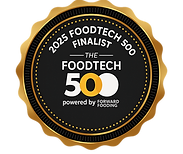

BEOBIA
Accelerating the future of agriculture
WHAT DO WE DO?
We are accelerating agriculture’s transition into the circular economy by creating sustainable animal feed using insects, waste and technology.
HOW DO WE DO IT?
Commercial Black Soldier Fly Larvae ‘BSFL’ Farms. Converting organic waste into affordable, sustainable animal feed and fertilisers produced at scale. At our R&D centre, we've developed a scalable process using BSFL to transform waste recycling.

Farming Black Soldier Larvae
Black Soldier Flies Larvae (BSFL) are the future of eco-agriculture. Their larvae rapidly break down organic matter without posing health risks. Converting it into protein through larvae and organic fertiliser through their excrement (frass).
BSF are rich in protein and nutrients, offering a truly sustainable solution for animal feed. Ensuring the production of environmentally friendly livestock for a growing human population.
AS FEATURED ON




INSECT FARMS
Our BSFL Farm Sites are the future of agriculture.
Utilising organic waste that would otherwise go to landfill.

SUPPORTED BY
We are proud to be supported by leading organisations. Together, we are working towards a better future for the planet and all its inhabitants.

Innovate UK

Loughborough University
Santander Bank

Maughan Capital




